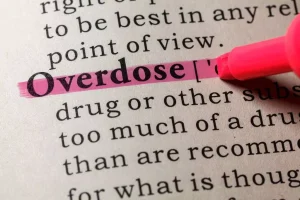Understanding Binge Drinking National Institute on Alcohol Abuse and Alcoholism NIAAA
Alcohol affects this function of the kidneys within 20 minutes of consumption. Whether a kidney patient is on a fluid restriction or needs to drink more fluids, alcohol must be considered. One of the most important considerations about alcohol in a renal diet is the fact that alcohol is a fluid.
Is Beer Good or Bad for Your Kidneys?

Some prescription or over-the-counter medications can interact with alcohol. Alcohol alters the effectiveness or toxicity of many medications, and some medications may increase blood alcohol levels. For those with diabetes and CKD, alcohol may be safe to drink if you have your blood sugar level under control.
Recipes for Dialysis Patients
If a person drinks a lot in one sitting they may experience changes in blood pressure. There is a direct relationship between blood pressure and kidneys’ function. Acute pancreatitis related to alcohol intake changes the level of phosphorus in the blood. This sudden condition causes the pancreas to become inflamed.
Treatment for Alcohol-Induced Kidney Diseases
Your doctor may prescribe kidney medication or recommend programs in your area to help you. Follow a low-fat, healthy diet that has plenty of fresh fruits and vegetables. Treat gastritis by avoiding alcohol, pain medications, and recreational drugs. alcohol and kidneys Your doctor may prescribe proton pump inhibitors or H2 antagonists to reduce the production of stomach acid. Treat dehydration by replacing lost fluids and electrolytes. You can have a sports drink that has electrolytes and a carbohydrate solution.
- This can cause a sudden drop in kidney function known as “acute kidney injury.” When this happens, dialysis is needed until a person’s kidney function returns to normal.
- These are serious conditions that require medical and nutritional interventions.
- More than two drinks a day can increase your chance of developing high blood pressure.
- For example, when rats are given alcohol, they also require significant magnesium in their diets, suggesting that alcohol disrupts absorption of this nutrient from the gut.
Causes of Low Phosphate Levels in Alcoholics
When alcohol dehydrates (dries out) the body, the drying effect can affect the normal function of cells and organs, including the kidneys. In addition, alcohol can disrupt hormones that affect kidney function. Heavy drinkers with long-term alcohol consumption leading to alcohol abuse expose themselves to numerous health risks, including harmful effects on both liver and kidney function. For dialysis patients, whose kidneys are already compromised, the liver assumes a larger role in alcohol metabolism. However, excessive alcohol intake can burden the liver and potentially lead to further damage, hindering its ability to process toxins and medications. The kidneys are one of several ways the body controls blood pressure.

Triple your impact for kidney patients.
- This often comes up when I am evaluating someone for kidney disease.
- Urine tests will look for protein (albumin) and blood in your pee.
- Your blood circulates through your kidneys many times a day.
- SUD can affect several aspects of a person’s physical and psychological health.
The few studies focusing on alcohol’s direct effects on perfusion in human kidneys suggest that regulatory mechanisms retain control over this component of kidney function despite alcohol consumption. Even at high blood alcohol levels, only minor fluctuations were found in the rates of plasma flow and filtration through the kidneys (Rubini et al. 1955). Additional studies are needed to confirm these observations, however. Among the most important substances contributing to these conditions are water, sodium, potassium, calcium, and phosphate. Loss or retention of any one of these substances can influence the body’s handling of the others. In addition, hydrogen ion concentration (i.e., acid-base balance) influences cell structure and permeability as well as the rate of metabolic reactions.
Type 1 diabetes
The slope of decline in the eGFR estimated over 12 years was less steep in the higher alcohol intake groups (Fig. 3). When experts talk about one drink, they are talking about one 12-ounce bottle of beer, one glass of wine (5 ounces), or one shot (1.5 ounces) of “hard liquor.” SUD can affect several aspects of a person’s physical and psychological health. For example, frequent cannabis use in adolescents can increase the risk of psychosis in adulthood in individuals who carry a particular gene variant.